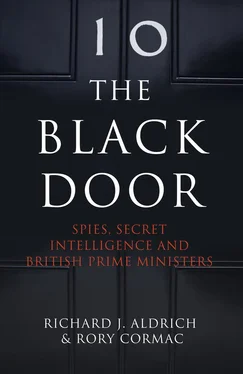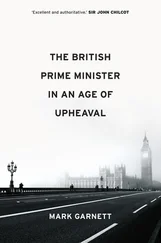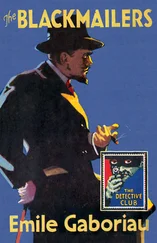Lloyd George’s hard line resulted in his also being criticised by the left, so he was eventually pushed into publishing eight of the intercepts. He used a rather thin cover story, claiming that they had been provided by a neutral country. Churchill, showing his characteristic impulsiveness and little nuanced appreciation of the value of intelligence, had led the charge demanding publication. Amazingly, blinded by their ideological hatred of Moscow, the intelligence chiefs had agreed. Quex Sinclair, now head of MI6, who had superintended the best wartime codebreakers, insisted that ‘even if the publication of the telegrams was to result in not another message being decoded, then the present situation would fully justify it’. Intelligence officials leaked further decrypts to newspapers three weeks later. Lloyd George fired Basil Thompson shortly afterwards, leading some to suspect that it was he who was responsible for the leak. His departure was a positive move, and ensured that the Foreign Office and MI6 extended full control over foreign intelligence.82
The prime minister maintained his policy regardless, and secured an Anglo–Soviet trade agreement in 1921. Although a further surge of Soviet subversive activity was discovered in 1922, Lloyd George was overtaken by political scandal before he could respond, accusations of selling seats in the House of Lords forcing him to resign in October. In the summer his colleagues, led by Bonar Law, had chosen to make more Soviet decrypts public. Moscow predictably changed its cipher system, and an important stream of high-grade intelligence disappeared.83 Despite the deliberate and foolish revelations of 1920, 1922 and 1923, GC&CS continued to read much high-level Soviet traffic.84
Astoundingly, Soviet incompetence was even greater than that of the British. As early as July 1920, Kamenev and his colleagues had requested a replacement for their ‘Marta’ cipher system, believing it to be insecure. But their superiors resisted this request as requiring too much effort. They not only ignored the revelations in The Times but also strident warnings from senior Red Army commanders that their most secret correspondence in Europe ‘is known word for word to the English, who have organised a network of stations designed particularly for listening to our radio’. By the end of 1920, Georgy Chicherin, the long-serving Soviet foreign minister, seemed to have got the message, and warned his mission in London that very sensitive material should be sent only by courier. But many secret communications continued to be intercepted by GC&CS.85
GC&CS therefore remained the star in Britain’s interwar intelligence firmament. Between 1920 and 1924, it issued over 13,000 intercepted signals, approximately 290 a month, including more than half of all French traffic. Yet little of this went to Downing Street. If the prime minister was not regularly in receipt of these gems, where did they go? The answer is to the Foreign Office, which aggressively clawed back control over foreign intelligence from the military following the end of the war. Intercepts informed the negotiation of complex post-war settlements and treaties that followed the First World War, such as those at Sèvres and Lausanne, often giving British diplomats the upper hand. One of the most important customers was the foreign secretary, Lord Curzon. By 1922, Curzon also enjoyed power over distribution, deciding what secrets should go to the prime minister or to members of the cabinet. Unfortunately, the decrypts often revealed the fact that Lloyd George was pursuing a separate and secret foreign policy, entirely undeclared to Curzon, and was sometimes backing the Greeks in treaty negotiations against his own foreign secretary. Curzon was an emotional individual, and knowledge of the ‘dirty’ activities of his friends and allies stirred apoplectic outbursts. In 1922, meeting with the French prime minister Raymond Poincaré, Curzon had to be led weeping from the room, and refused to return until Poincaré apologised for his behaviour.86
Curzon deliberately kept much intelligence away from Downing Street. Things were made worse by the lack of a system for synthesising intelligence material and presenting it to leaders in a way that would allow it to inform strategy. Instead, attention often focused on single documents. This was typified by the impact of intelligence on talks about the future of Britain’s alliance with Japan during the early 1920s, a decision that would cast a long shadow. Intelligence focused less on Japan’s intentions and capabilities than on plots and nefarious activities: Lloyd George told cabinet that other friendly powers did things that were ‘infinitely worse’ than the Japanese secret service. Curzon argued for a renewal of the alliance, despite the fact that he considered the Japanese ‘insidious and unscrupulous’. Churchill opposed a continued alliance with Tokyo, and to back up his argument showed his cabinet colleagues a secret Japanese map of Gibraltar that had come into the hands of MI5. Intelligence was often about alarms and incidents, and rarely informed national assessments.87
Meanwhile, the Irish problem had been rumbling on. The Easter Rising and the First World War were swiftly followed by the Irish War of Independence in 1919. Peace negotiations began in 1921, culminating in the formation of the Irish Free State the following year. This time Lloyd George lacked signals intelligence, but he did draw upon other forms of intelligence to aid the British position. Unfortunately, the material reaching him and his ministers came from military intelligence officers who opposed the truce. Consequently, they offered biased worst-case scenarios in which Sinn Féin and especially the IRA intended to play for time before resuming their offensive, including ‘fantastical reports’ of chemical weapons. Fortunately for the peace process, a more confident outlook emanated from the civilian authorities in Dublin, and the ‘two opposing interpretations of the Irish situation battled it out from July to December 1921’. Lloyd George fell into the optimistic camp, and was determined to reach peace, but the alarmist intelligence came perilously close to collapsing the negotiations altogether. By early December, the prime minister had had enough. He issued a dramatic ultimatum: accept the peace or resume war in three days. This was a gamble. Contradictory and inaccurate intelligence meant that he had no idea whether Sinn Féin would accept – and Britain was in no position to resume war so soon. However, the starkly pessimistic intelligence coming out of Ireland offered enough warning about IRA rearmament to convince Lloyd George to set a strict deadline. The negotiations hung in the balance, and there was ‘palpable relief’ when the Irish signed the deal.88
Prime ministers must celebrate when they can; success is often short-lived. In May 1922, Lloyd George was livid when he was shown the new Irish government’s draft constitution, despairing that it represented ‘a complete evasion of the treaty’ he had gambled on securing. Intelligence uncovered numerous plots, some more real than others, against Northern Ireland and the British mainland, in which the Dublin government was complicit. Frustrated, Lloyd George feared that the Irish ‘may have to face re-conquest’. When IRA men assassinated Field Marshal Henry Wilson in London the following month, the government found itself under pressure to wipe out the IRA headquarters in Dublin. A single piece of intelligence wrongly linked the murder to a Dublin conspiracy, and an attack on the IRA headquarters by British troops would have wrecked Britain’s Irish policy ‘at one stroke’. Nevertheless, led by Churchill, the cabinet approved the strike. Once more, Churchill failed to appreciate the nuances of raw intelligence and exhibited his famous impetuousness. All this frustrated the prime minister, but fortunately for Lloyd George and his Ireland policy, the army refused to obey the order.89 This marked Lloyd George’s final dealings with the Ireland problem, but Churchill would have to return to it during the Second World War. More ominously, it was merely a taste of the troubles to come for future prime ministers, from Harold Wilson onwards.
Читать дальше












